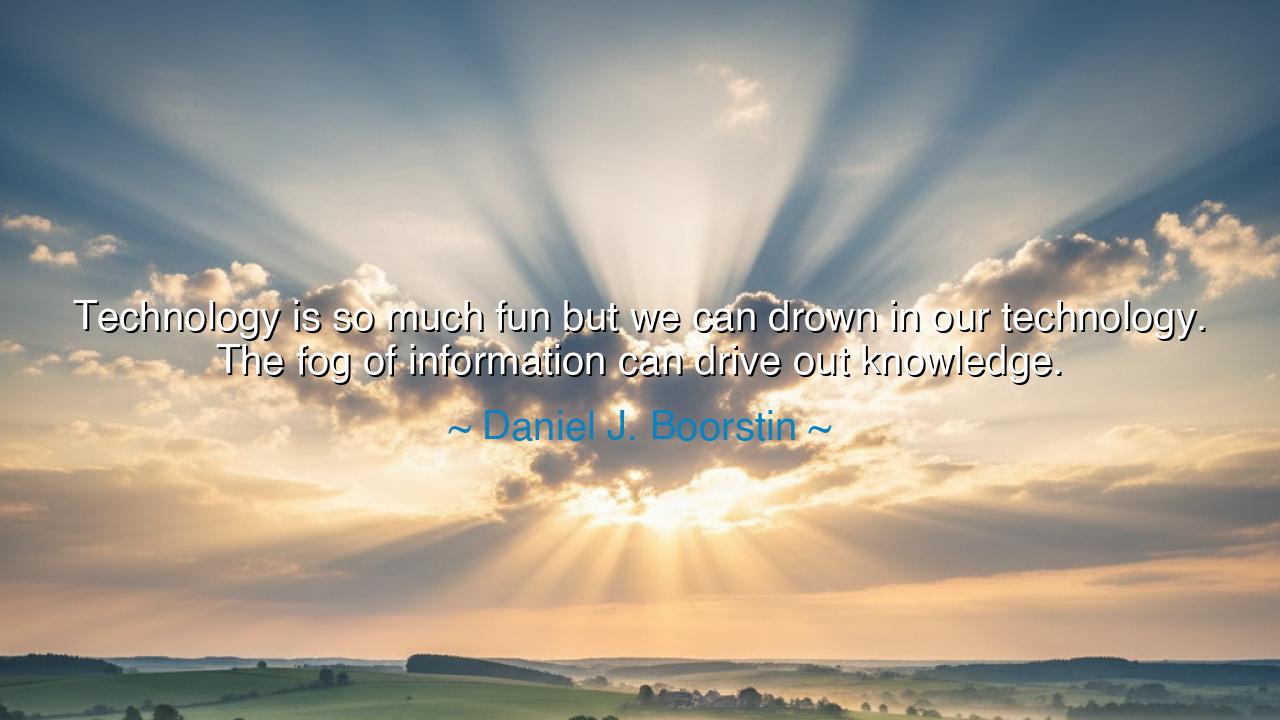
Technology is so much fun but we can drown in our technology. The
Technology is so much fun but we can drown in our technology. The fog of information can drive out knowledge.






“Technology is so much fun but we can drown in our technology. The fog of information can drive out knowledge.” Thus spoke Daniel J. Boorstin, historian and philosopher of modern civilization, whose gaze pierced beyond invention into the depths of the human soul. These words are not a curse upon technology, but a warning — that the tools which promise us liberation may also bind us, that the rivers of information flowing through our age may not always lead to wisdom. His words ring like a bell across the centuries: we are surrounded by marvels, yet starving for meaning; we are connected to all, yet estranged from understanding.
In the beginning, man built tools to conquer nature. Fire, the wheel, the printing press — each invention lifted him higher, closer to mastery of his world. And indeed, technology is a wonder, a proof of the divine spark within the human mind. It has carried us to the moon, healed the sick, and drawn the nations together through invisible threads of light. But as Boorstin warns, we have come to worship our tools, forgetting that they were made to serve, not to rule. The fog of information has become our new ocean, vast and glittering — yet in its depths, many have lost their way.
Boorstin wrote these words in the twentieth century, as the first tides of the information age began to rise. He foresaw what few could imagine — that when knowledge becomes too abundant, it can cease to enlighten and begin to overwhelm. In the ancient world, a scholar might labor years to find a single text, cherishing its wisdom. Today, a child may summon a thousand books in a moment — and yet, understand none. The flood of information has replaced the fountain of thought. The wise once sought silence to hear truth; now, we must fight noise to remember it still exists.
Consider the story of the Library of Alexandria, that beacon of learning in the ancient world. Within its walls, scholars gathered scrolls from every known land, seeking to gather all knowledge under one roof. But when fire consumed that library, the world mourned the loss of wisdom. Yet today, we hold in our hands more knowledge than Alexandria ever contained — and still, the flame of understanding flickers low. For knowledge is not in the gathering of facts, but in the shaping of meaning; it is not the scroll, but the soul that reads it. In drowning ourselves in data, we risk forgetting how to think.
We see this






AAdministratorAdministrator
Welcome, honored guests. Please leave a comment, we will respond soon